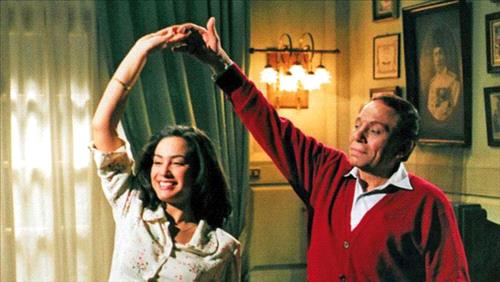Ammon News - AMMONNEWS - The British Film Institute’s (BFI) year-long exploration “Discover Arab Cinema” draws to a close this December. Having stood in sharp contrast to other film festivals or seasons in the Western world which usually span between a few days to a month, it’s dedication to widen the scope of audiences to Arab cinema remains unprecedented.
Over the past year, the program has showcased a wide array of Arab cinema to BFI Southbank audiences for the first time. Speaking to Al Arabiya News, Helen de Witt, Head of Cinemas at BFI explains that the “the program was both geographically and thematically constructed to films from Morocco to Iraq; experimental films for Palestine to documentaries from Syria, and a rare program of Saudi shorts.”
Discover Arab Cinema, programed by Mona Deeley, in collaboration with the Zenith Foundation, launched with the UK Premiere of Ahmad Abdalla’s ground breaking film “Rags and Tatters” at the BFI last year in December. This December, the festival will boast popular epic literary adaptations, including Yousry Nasrallah’s “The Door to the Sun” and Marwan Hamed’s “The Yacoubian Building.”
“We are pleased to say that over the course of the year we welcomed many filmmaker guests, had supporting educational events and debates and several sell out screenings. The BFI Southbank’s commitment to Arab cinema in no way concluded with the final instalment of Discover Arab Cinema, we will be developing a number of follow-up projects with details to be announced in the New Year” explains De Witt.
In this month’s final strand of the 12-month program, the selection of films reflect the cross influence between literature, theatre and film.
One of the films showing this month, “The Door to the Sun,” is a classic from Egypt, based on the novel by internationally acclaimed Lebanese author Elias Khoury. It transports cinema audiences on an epic journey covering some 50 years of Palestinian history through the life of a dying man, Younes. The complex structure invites the viewer to reflect on the nature of memory and mythology.
Another film being showcased during this month highlights how theatre has been embraced as a source of inspiration for the film medium. The film “Incendies,” based on Wajdi Mouawad’s 2003 play, is a powerful, thrilling and moving story about how the traumas of war and violence can transcend generations and geography.
Other titles include “The Yacoubian Building” and “Games of Love and Chance,” which cleverly hinges on the performance of a play within the film.
Whilst the Arab world may be bound by the same language, the reality is the 22 countries all have their own dialects and local customs. The recent drive in the UK to showcase the plurality of Arab cinema through festivals and seasons is to reflect this cultural diversity. Arab cinema has been previously hosted by the likes of Safar and BAFTA and the growing desire for a cross-over of Arab cinema in the UK stems from an ambition to explore identity as well as to enhance understanding and engagement with diverse perspectives to do with the Middle East and the North African regions.
The determination to build cultural bridges through the Arab cinematic art form has never been more pronounced. Films often form the zeitgeist of our time. When scenes from the Arab world convey terror, conflict, human suffering and hate as part of the rolling news, the silver screen plays an important role in widening representation beyond the narrow field of vision of the news cycle.
The year-long feature at the BFI also forms a fitting tribute to Sheila Witaker, who was not only an important figure in initiating the yearlong season, but was also dedicated to promoting Arab film that reflects the diversity of Arab culture. She passed away in mid-2013, without being able to watch the program develop into fruition. Many believe her legacy will be the cross-fertilization of Arab cinema to wider audiences.
* Al Arabiya
